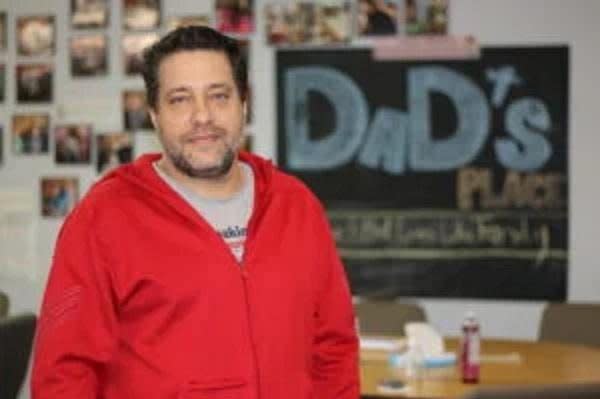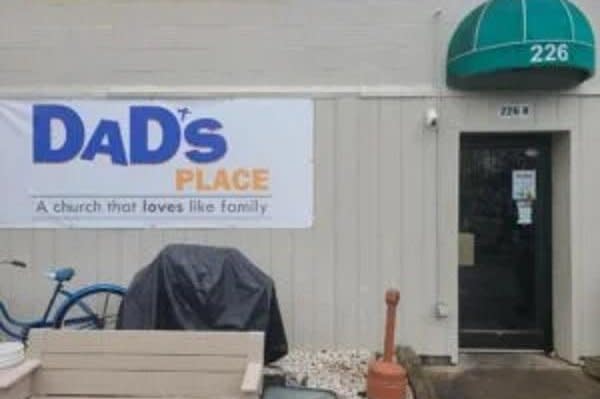Churches, city officials clash over sheltering homeless overnight

SALT LAKE CITY, Feb. 29 (UPI) -- Houses of worship in some frigid parts of the United States are allowing homeless people seeking a warm place to sleep to stay overnight in their buildings when temperatures drop -- which can put them in conflict with city or state laws.
Some have found workarounds or try to fight City Hall. The disputes often pit zoning and safety concerns against Christian values of caring for vulnerable people, even saving lives.
Criminal charges have been dropped against an Ohio pastor accused of violating zoning laws by allowing homeless people to sleep at his church, but a legal battle in the case is continuing.
Dad's Place, a nondenominational Christian church in Bryan, Ohio, began operating around the clock last March and has permitted an average of eight people -- about a dozen in extreme weather -- to stay overnight. In November, the church received a letter from the city ordering it to cease its 24-hour operations because it is in a central business zoning district that does not allow people to sleep on the property and prohibits first-floor residences.
But the church decided to continue to keep its doors open 24 hours a day, and Pastor Chris Avell was charged in December with 18 zoning violations for allegedly allowing homeless people to reside on the property "for an extended amount of time." The maximum penalty for each charge is six months in jail and a $500 fine.

That led Dad's Place to file a lawsuit in U.S. District Court in Toledo against Bryan and its officials, seeking a declaration that the city's application of the zoning ordinances violates Dad's Place's religious freedom rights and an order barring the city from taking further steps to enforce them.
"The city's application of its ordinances implicates the very core of a religious group's activities -- worship and religious activities on church property," the suit says.
Caring for the vulnerable
Avell has been operating Dad's Place since 2018 from a rented building in downtown Bryan, a small town in northwest Ohio about 50 miles from Toledo. The decision to never close the doors of the church to the public was part of a ministry focusing on "the hurting, marginalized and outcasts living in and around the city," according to the suit.
Attorney Ryan Gardner, counsel with the First Liberty Institute, a nonprofit legal organization that represents Dad's Place, said that even before the church began operating 24 hours a day, the doors would be open overnight to provide shelter during extreme weather. Allowing people into a church at all hours of the night goes back to the earliest days of Christianity and even earlier with other religions, he said.
"It's touched a lot of hearts for people to see the church doing what most people would think the church should be doing -- caring for the most vulnerable, helping those who need it most, loving those who maybe don't have a family and don't have that support system," Gardner said.
The church does not intend to be a permanent residence but rather operates as an emergency shelter for anyone in need of a temporary place to stay while they look for permanent housing, the suit says.
"The church's policy on staying overnight is simple: The church's doors are always open, and it will not ask anyone to leave unless there is a biblically valid reason for doing so or if someone at the property poses a danger to himself or others at the church," the suit says.
For months, Dad's Place engaged in its "Rest and Refresh in the Lord" ministry from 11 p.m. to 8 a.m. each night without incident, the suit says. The lights were dimmed, Scripture was read over speakers and people could come and go as they pleased.
But in November, as winter was beginning, the city issued an ultimatum that the church cease operating 24 hours a day. After Dad's Place refused to force people onto the streets, the city began engaging in a campaign to harass, intimidate and shut down the church, the suit alleges.
City officials say in a press release the Bryan Police Department started getting more calls beginning last May about "inappropriate activity" at Dad's Place. Some of the calls were about criminal mischief, trespassing, overdose, larceny, harassment, disturbing the peace and sexual assault.
In addition, Ohio fire code violations were discovered in an inspection, according to the press release.
"The city enforces its zoning code equally to all," the release says. "A church does not have any special rights under the zoning code and the city expects Pastor Avell and Dad's Place to follow the law as it does for all within the city."
The city also said it has been working with a homeless shelter next to Dad's Place to find room for people coming to the church and with social organizations to find additional help for them.
The two sides are mediating their dispute. The city dropped all charges on Feb. 8 and the church is continuing its 24/7 ministry as the parties conduct settlement discussions.
Avell is grateful for city officials' willingness to work with him, saying in a statement, "I am thankful to God, the city and for everyone who has been praying for this day to come."
Special use permits
First Baptist Church in Edwardsville, Ill., near St. Louis, Mo., was issued a $750 citation in December for operating an overnight warming location without obtaining a special use permit. The Rev. Drew Patton believes one wasn't needed. First Baptist has a permit to operate as a church in the downtown mixed-use zoning district, he said.
"We believe we were operating within our rights as a church to provide ministry to those who need it," Patton said. "We believe we were operating under the previous special use permit because the services we were providing, the ministry we were providing, are core to our identity as Christians."
First Baptist has continued to operate its warming location when temperatures plunge. Patton and other church leaders sent a letter Jan. 10 to Mayor Art Risavy and the city "respectfully" declining the request to get a special use permit.
"While we affirm and support the city's responsibility and authority to regulate the commercial activities of businesses, it does not extend to regulating the religious activities of churches," the letter says, adding legal representation has been lined up should the matter go to court.
Risavy directed his staff in January to suspend the citation issued to First Baptist, saying it was never the city's intent to stop the operation of the warming location, especially during dangerous weather conditions. At the time, the temperature was dropping into the single digits some nights, sometimes reaching negative numbers.
The church is in talks with the city to try to get the request for the permit dropped. A special use permit costs $750.
Edwardsville officials say in a press release First Baptist is being treated the same as any hotel, overnight warming location, adult or child-care facility or any other uses that are not specifically included in the zoning district. A special use permit helps to ensure appropriate safety measures and operations are in place.
A fire marshal who did a walk-through recently of the First Baptist warming location had only one recommendation, the addition of a carbon monoxide monitor, and said everything was in great shape, Patton said.
Freezing temperatures
Safety also was a concern for Rapid City, S.D., officials when Woyatan Lutheran Church put up an Arctic weather tent to accommodate more people overnight.
The city issued an order Jan. 12 barring the use of the tent as an overnight warming shelter but not requiring its removal. With a low of -19 degrees that day, the officials were worried about the possibility of fire from efforts to heat the tent.
"The city has had little issue with facilities or organizations, including churches, wishing to provide day services and warming shelters to those in need during the day," Rapid City officials said in a statement. "The city does have concerns when tents or temporary facilities are set up for overnight sheltering. These temporary facilities pose safety risks."
The officials also noted an encampment near the city limits set up a few years prior for homeless people had caught fire and said existing facilities have available space.
The Rev. Joe Hubbard of St. Matthew's Episcopal Church in Rapid City said religious liberties under the First Amendment have been threatened by the possibility of being charged with zoning and permitting violations. The tent was put up in preparation for a wake and funeral the next day and to accommodate the deceased person's family, he said.
Hubbard describes his church and Woyatan Lutheran as allies that together offer the spectrum of what a Christian community ought to be. They have removed the pews at Woyatan and replaced them with bunks to ensure everyone has a warm place to sleep and moved traditional church worship, such as Sunday services and funerals, to St. Matthew's, he said.
"Jesus says, 'I was hungry and you gave me something to eat. I was thirsty and you gave me something to drink. I was a stranger and you welcomed me,'" he said, adding that is the embodiment of what Woyatan is offering.
Movie nights, code blue
Pastor Justin Banks has held movie nights at his small church in Provo, Utah, for years, an event designed to temporarily shelter homeless people in frigid weather.
Utah County has no zoning for shelters and Banks wanted to help unhoused people. So eight years ago, The Genesis Project, a nondenominational Christian church, began opening its doors twice a week on dangerously cold nights.
"I made it a church-sanctioned event," Banks said. "We'd offer a cup of noodles for people who wanted something to eat. Then we watched Netflix all night."
When it gets late, the lights are turned down and closed captioning replaces the sound as people sleep on chairs and on the floor.
"I want to keep people off the street," Banks said. "I want to keep people alive. If I'm doing a church-sanctioned event, you can't stop me."
A new law passed last year by the Utah Legislature has expanded the help that homeless people can get. When the temperature drops to a "code blue" level of 15 degrees or lower, including with the wind chill, homeless shelters can increase their allowable capacity and other entities, including churches, can open warming centers.
The First United Methodist Church in downtown Salt Lake City formed a coalition last year with advocacy groups to provide temporary shelter for homeless people and used the movie strategy.
The church has hosted 31 movie nights when the temperature dropped to 25 degrees or lower, said Mike Green, chair of the church's Board of Trustees. Guests were fed and could watch a movie and "just happened to stay all night," he said.
St. Mark's Cathedral, a block from First United Methodist, has opened as a backup. One night a few weeks ago, when temperatures reached the mid-20s, the two churches housed a total of 95 people.
"We're still 'bending the rules,'" Green said. "But the range between 15 and 25 degrees is still freezing and we're saving lives in doing so. The whole point is being able to provide that kind of support so that we don't run into losing lives that don't need to be lost."
